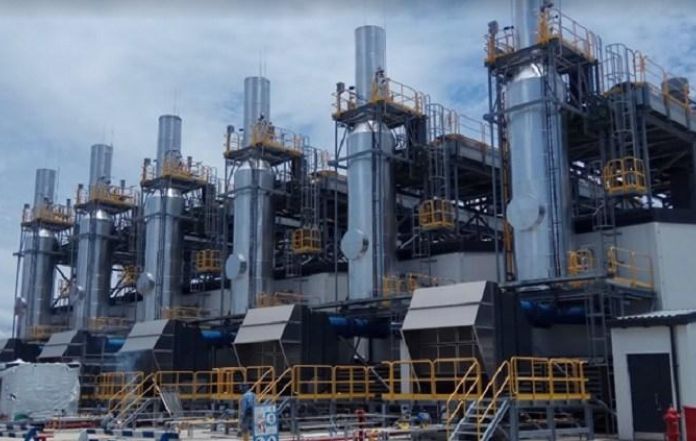The government of Benin has officially inaugurated the Maria Gleta gas engine power plant set to boost the country’s electricity capacity by 50%. Benin’s energy minister, Dona Jean-Claude Houssou performed the ceremony.
Also Read:Nigeria’s Kaduna power plant to be powered by liquefied Natural Gas
Maria Gleta gas engine power plant
The gas engine power plant is located near the city of Cotonou. The plant was part of the government’s ‘Revealing Benin’ action plan, which centres around 45 flagship projects aimed at strengthening macroeconomic development, consolidating democracy and improving the lives of the population.
The project runs on seven gensets from Germany’s MAN Energy Solutions, who built the plant in a consortium with Denmark’s Burmeister & Wain Scandinavian Contractor (BWSC). It will supply the national grid with 127MW of electricity.
The government also signed an agreement with Total for the development of a floating storage and regasification unit, which will ensure the supply of the Maria Gleta plant with liquefied natural gas (LNG).
The plant will mainly operate on natural gas keeping emissions at a low level, while ensuring fuel flexibility through its dual-fuel capability. This combination connects an environmentally friendly power generation with a secure supply at all time.
Energy sector in Benin
The energy Minister revealed that the plant is planned to be expanded later to a total capacity of 400 MW in future. Like most countries in Sub-Saharan Africa, Benin’s energy sector is largely dominated by the use of biomass-based energy sources (59.4%) followed by petroleum products (38.4%) and, to a lesser degree, electricity (2.2%).
The country solely depends on imports to satisfy its petroleum product demand, while 85% of its electricity consumption is answered by imports from Ghana, Cote d’Ivoire and Nigeria. Households account for 48% of the country’s total electricity consumption followed by the institutional sector and the industrial sector, which account for 32% and 24% respectively. The state owned company reduced electricity utility subscription rate in rural areas to US $84 from US $301.24 due to their lower living.

Leave a Reply